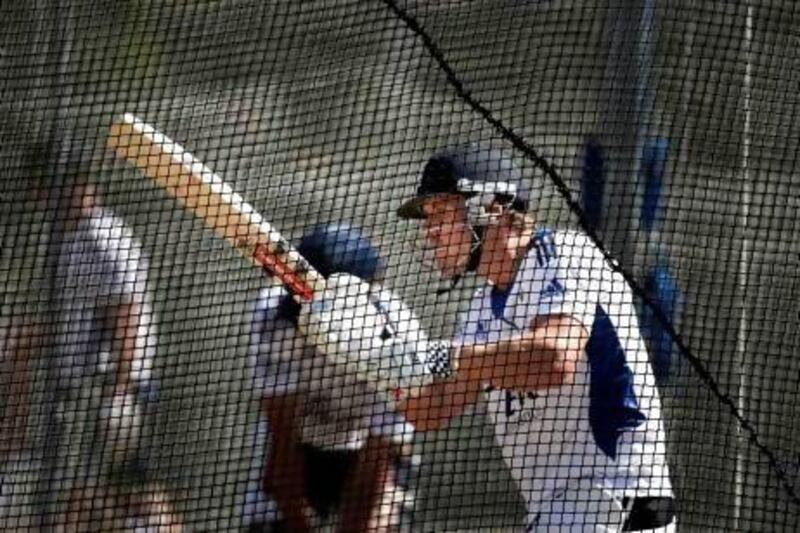This is a big year for
[ England ]
, in as much as no year ever seems to be a small one for them.
By next January they will have played 10 potentially tough Tests against Australia, even though the Ashes are no longer the barometer of English health they once were.
Australia's slide is the primary reason for that and South Africa are the side to topple right now, home or away. And England do not play them again until the winter of 2015.
Unfamiliar conditions are foes as well. England could not win in Sri Lanka last year and lost badly to Pakistan in the UAE.
So though it sounded a little surprising at first,
[ Matt Prior ]
's recent assessment of the series win in India should not do so on longer-term reflection.
"Winning in India," Prior told
The Cricketer
"is as big as it gets."
Even bigger, presumably, than the Ashes.
And slowly, the top spot in the ICC rankings is coming to acquire the allure that it carries in any sport. Rankings give cricket the kind of context they might not necessarily need, but do not mind having.
So these days at least it feels as important for England to chase after top spot as it does to win the Ashes.
Still, when they begin later this year the old feeling that no Ashes series means anything less than the world will be hard to escape, more so given England's only other Test opponents this year are
[ New Zealand ]
.
With that in mind, and with England suddenly and surprisingly buoyant after India, four points to note as they continue to undo the horrors of the first half of last year and tackle a potentially tricky year ahead.
The third fast bowler
Just under two years ago England had the best pace attack and certainly one with the greatest depth.
James Anderson and Stuart Broad were a formidable pair, Tim Bresnan an astounding and underrated backup and behind them waited Graham Onions and Steven Finn.
Now, only Anderson's reputation remains untarnished (enhanced, in fact); Finn still feels untested; Bresnan has fallen away alarmingly; Onions has vanished in spirit. Broad is the most mystifying conundrum.
Last year was a strangely poor one for him, despite taking so many Test wickets. He was outstanding in the UAE, but has slipped away sharply since the summer, down on pace and bite. To mount any serious challenge, England will need him to recover.
The spinner
Unlike the pace attack, the problem here is of too many: one too many to be precise.
It is difficult to see England playing both
[ Graeme Swann ]
and Monty Panesar for any prolonged period. So one of the constant headaches they will have to deal with is who to drop.
Swann's batting and catching will win him the vote on most surfaces (though the batting is not as sturdy as always imagined).
But Panesar has been bowling like a left-handed dream over the last year, and purely as bowler, has probably been better than Swann, who in turn, has looked jaded at times. To not utilise Panesar's talent, in that kind of form, is going to be one of England's enduring dilemmas.
Ian Bell
Ah,
[ Ian Bell ]
. The world keeps getting to the point where he is almost a genuinely great batsman before it quickly turns, like the world in 2012, where Bell was, for periods, almost as vulnerable as he was during the 2005 Ashes series.
He is not back in that space fully of course. He will get hundreds too this year, of that you can be sure.
New Zealand and Australia are precisely the kind of orthodox attacks woefully bereft of spin options that he will thrive against.
But for many, beautiful as he is to watch, he is not there at the very top. Questions remain, specifically on low, slow surfaces and against quality spinners and if England are to truly be the world's best side, everywhere, they are going to need Bell to answer them.
An opener
England have gone a pretty long time without really worrying about their opening pair. There has been low patches sure, but usually the openers have been among the first few names on the team sheet.
With the retirement of Andrew Strauss last year, however, England are on unsettled and unfamiliar terrain. Nick Compton has not been a bad replacement; in India he put on two century and two fifty stands with Alastair Cook.
But by not going beyond 57 himself and batting so cautiously, he has not closed the door emphatically enough on contenders.
Right now, he feels just a little like Akash Chopra or Ed Cowan: solid enough but either overshadowed by a better partner, or expending far too much energy for too little reward.
Follow us
[ @SprtNationalUAE ]





